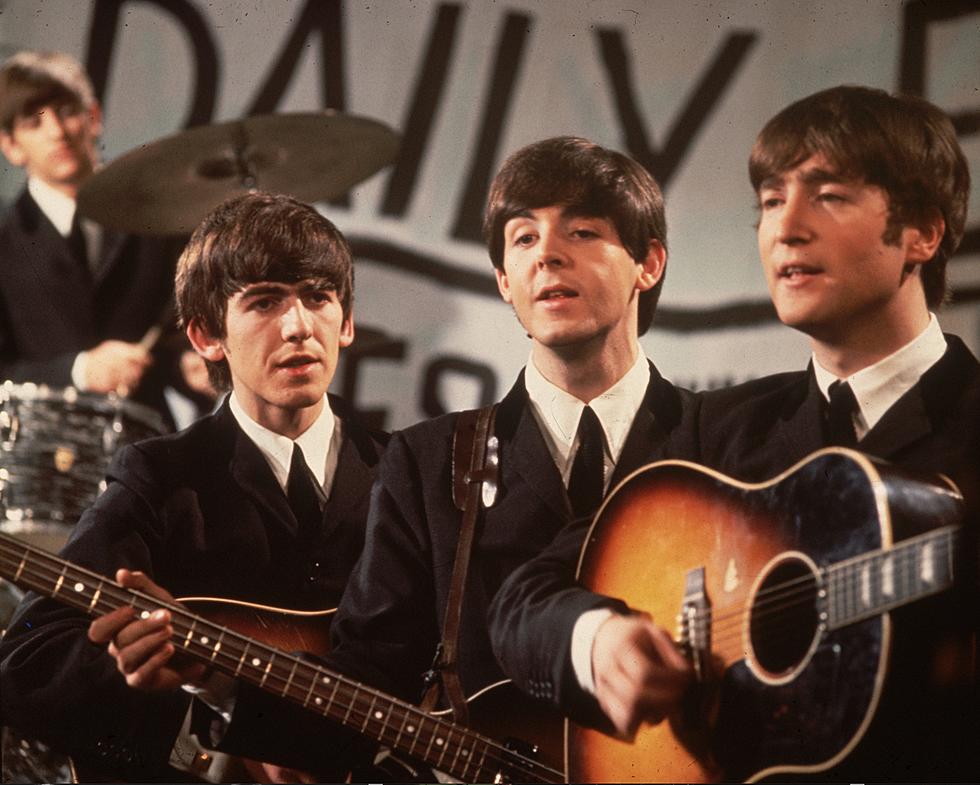
Men at Work: Where Are They Now?
Australia's INXS might have been a household name across North America during the latter half of the '80s, but the first portion of that decade decisively belonged to fellow Aussies Men at Work.
Formed in Melbourne in 1979, the band quickly earned a loyal audience at home, leading the group to sign a record contract with CBS Records Australia, which in turn issued its debut effort, Business as Usual, in 1981. Released the following year in the U.S., the album's lead single, "Who Can It Be Now?", hit the No. 1 position on the Billboard Hot 100 on Oct. 30, 1982, and would spend a total of 27 weeks on the chart.
Watch the Video for "Who Can It Be Now?"
Business as Usual would top the Billboard Albums Chart for 15 weeks, but despite scoring a second U.S. No. 1 single with "Down Under," the group's success wouldn't last. The band's sophomore effort, Cargo, arrived in stores at the end of April 1983, but failed to catch on with the public at the same level as the band's previous full-length. Following inter-band turmoil that saw the dismissal of the group's rhythm section while preparing to record their third album, Two Hearts, Men at Work would splinter by early 1986.
Men at Work founder and vocalist-guitarist Colin Hay would reunite the band on a few different occasions following their break-up, but never with the complete lineup -- Hay, multi-instrumentalist Greg Ham, guitarist Ron Strykert, drummer Jerry Speiser and bassist John Rees -- from the group's most successful era. The current incarnation of the band touts Hay as the sole original member.
So whatever happened to the members of Men at Work? Let's take a look and find out:
Colin Hay
Following the break-up of Men at Work, Hay dove head-first into a career as a solo artist and has gone on to release a dozen critically-acclaimed efforts, including his most recent full-length, Now and the Evermore.
Hay would also land a number of roles on television, namely Scrubs, and more recently, A Million Little Things, while also making occasional film appearances.
In 2019 Hay began touring with a completely new lineup of Men at Work. Earlier this year, they toured the U.S. with Rick Springfield and John Waite. Hay is slated to undertake a solo tour of the U.K. in early 2023. He's also kept busy touring as a member of Ringo Starr's All-Starr Band alongside Toto's Steve Lukather, Edgar Winter and others.
Greg Ham
Ham was undoubtedly one of the most versatile members of Men at Work, having played piano, saxophone, organ and flute. Following his retreat from the spotlight, the rocker reportedly become a music teacher while continuing to perform with various acts. In 2010, an Australian court ruled that Ham's iconic flute solo in "Down Under" had "reproduced a substantial part" of "Kookaburra," an Australian children's nursery rhyme written in the 1930s. The rights of the songs were purchased by a music publisher, which in turn sued Hay, Strykert and the band's label, seeking backdated royalties along with a share of future profits from the song.
"I'm terribly disappointed that that's the way I'm going to be remembered - for copying something," Ham said, following the verdict. The decision took a particularly devastating toll on the musician, who reportedly slipped into drug and alcohol abuse. Ham subsequently died at his home in 2012, at the age of 58. Colin Hay described his late bandmate as a "man with a golden heart."
Jerry Speiser
The Men at Work drummer, along with his bandmate John Rees, was unceremoniously fired from the group just prior to the making of the band's third record following a reported dispute over their manager at the time, Russell Deppler.
"Russell was good for hustling gigs in Melbourne and Sydney but once the band became international and multi-million, the sheep farmer from Warrnambool had no idea," Speiser told the Australian Financial Review in 2016.
Having earned a major in physics before becoming an international rock star, Speiser continued playing in bands following his departure from Men at Work and would go on to serve as a management consultant.
John Rees
Little official information can be found for Rees' post-Men at Work career. The band's former bassist reportedly lives in Gippsland, a rural area in Southern Victoria, where he performs in local pubs with his band Beggs2Differ.
As for Rees' tumultuous departure from Men at Work, Hay admitted regrets about the way the group's rhythm section was dismissed.
"The rhythm section got sacked because they wanted to sack the manager, who was my friend," Hay said. “In retrospect, I think I would have done things a lot differently. But at the time you’re dealing with information you had and that’s what happened."
Hay said that while he was close to the group's manager at the time, he acknowledges Deppler should have done more to try to prevent the split.
“What Russell could have, or should have done better, was to actually have been someone who kept the band together as opposed to being somebody who was actually part of the problem,” he added. “He didn’t have those social skills or communications skills.”
Ron Strykert
By the time Men at Work's third album came around, their guitarist appeared detached from the group.
“He [Strykert] was in the band but I don’t think he particularly cared for the band!” Hay told Starts at 60. “So in the middle of the third record, he said to me one day, ‘Oh I think I’m going to go home’, and I said, ‘Oh yeah, are you going to come back?’ and he said, ‘No, I don’t think so’. He never came back.”
Things went downhill for Strykert following his Men at Work stardom. The musician relocated to Montana and joined the Church Universal and Triumphant, an organization described by MTV as "a religious cult." In 1998 he was arrested and briefly jailed for failure to pay child support.
Strykert was reportedly homeless for two years before returning to music in an effort to get his life on track. The musician released his solo debut, Paradise, in 2003.
Four years later, Strykert and Hay had a significant falling out over song royalties. And two years after that, Strykert was arrested after having made death threats against Hay, a charge the guitarist denied.
In an interview with Rock Cellar Magazine in 2012, Hay didn't directly address the charges, but spoke fondly of his memories of working with Strykert.
"Ron and me worked together as a duo for about a year before Men at Work were formed. When I knew Ron, he was a very inspirational guy and was really important for the band and for me as a songwriter and musician...So when I think of Ron, I think of that beautiful inspiring musician I knew who was so important for me as a songwriter."
Top 100 '80s Rock Albums
More From KOOL 101.7










